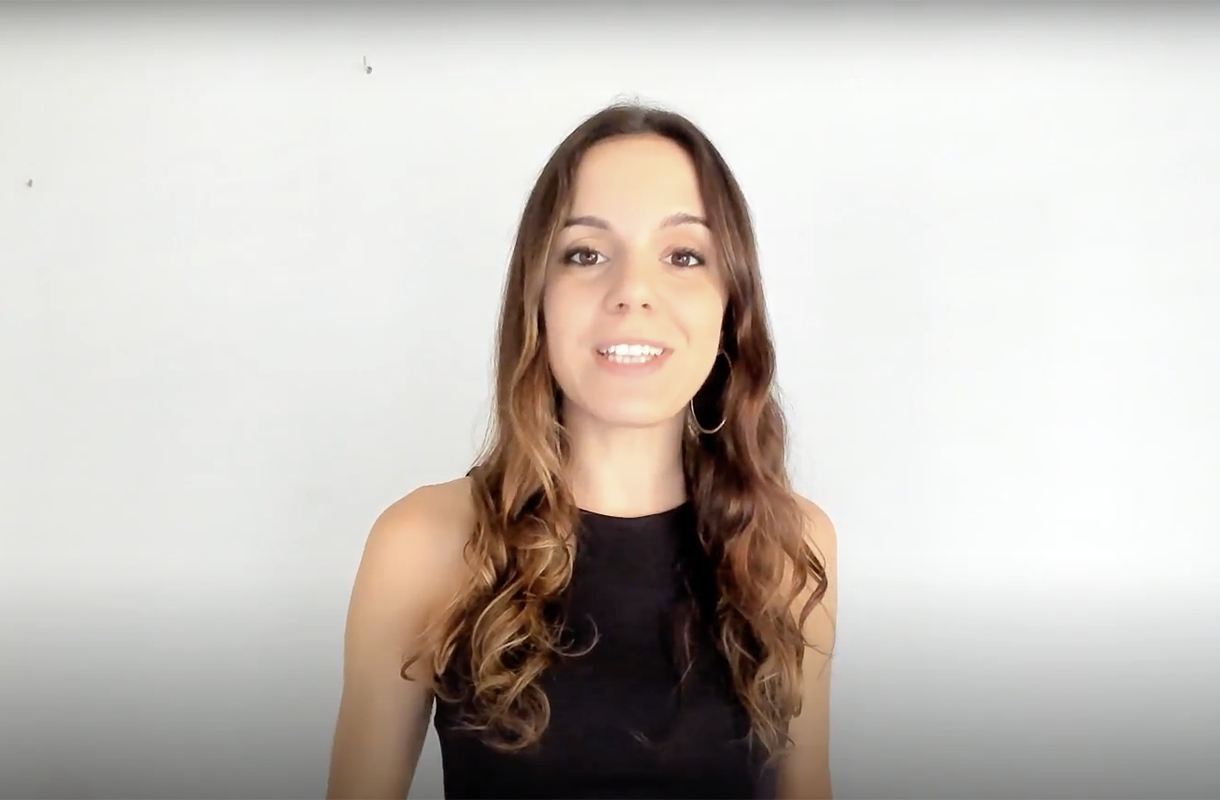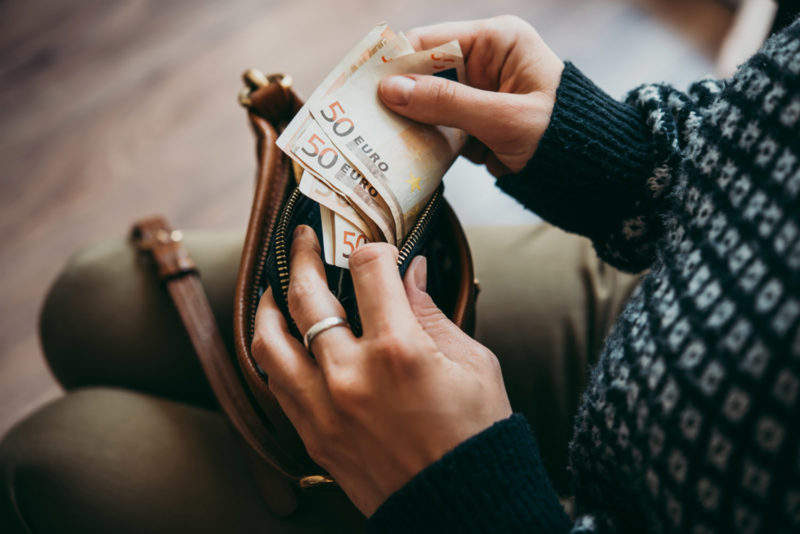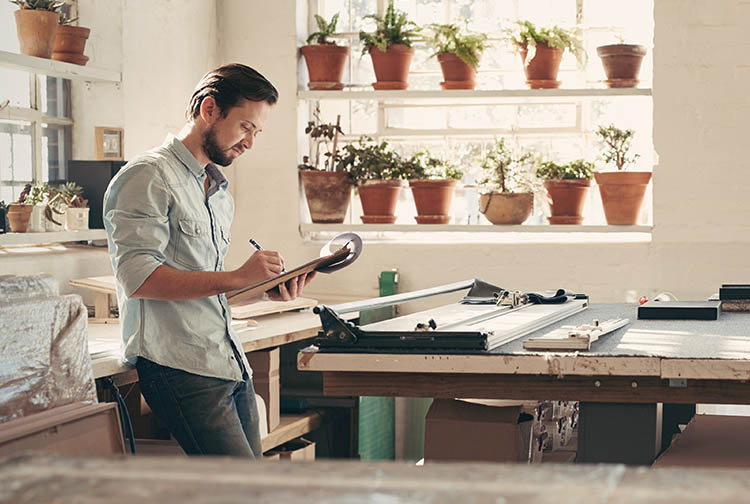

Is it safe to keep money at home?
Tota la vida hem sentit a dir que tenir diners en efectiu és clau, Cash is king en anglès. Però encara que hi pugui haver certa veritat en aquesta dita, pot ser que guardar tots els nostres estalvis a casa ja no sigui la millor opció.
Des que es va inventar la moneda, el pensament predominant en la nostra societat ha sigut pensar que com més diners, millor. L’acumulació de bitllets i monedes ha sigut una constant al llarg de la història. La gent estalviava per si venien mal dades, guardava diners en èpoques de vaques grasses per a poder-ne disposar en èpoques de vaques magres, per si es necessitaven els diners per una urgència o simplement per a assegurar un futur millor per als seus fills. Evidentment no tothom ha tingut la sort de poder permetre’s apartar una quantitat important dels seus diners regularment, però qui més qui menys ha tingut petits estalvis guardats a sota d’una tauleta de nit, dins d’una caixa forta amagada, o encara que sembli un tòpic d’altres temps, a sota el matalàs.
Seguretat, la raó del canvi d’hàbits
Amb el pas del temps, la quantitat de diners guardats a casa s’ha anat reduint a poc a poc. I no és casualitat. El desenvolupament del sistema financer i els avantatges que ofereix li ha permès agafar un rol protagonista pel que fa a la captació dels estalvis, relegant les caixes fortes particulars a un cert ostracisme. Però, per què s’ha produït aquest canvi d’hàbits tan dràstic? El principal factor és la seguretat, i és que no deixa de ser un fet que, per molt ben amagats que puguem deixar els nostres estalvis, sempre hi ha la possibilitat que siguin robats.
L’altre punt a tenir en compte és la fiscalitat, ja que guardar els diners en efectiu a casa, actualment, pot comportar certs riscos de cara a Hisenda. Ens ho explica l’agent Mireia Cano.
Els diners perdran valor?
L’altra variable a tenir en compte és la inflació i els seus efectes en el nivell de preus generals. La raó és molt simple: els diners que guardem a la caixa forta o sota el matalàs, dintre d’un any, dos, o deu, seguiran sent els mateixos, no s’hauran multiplicat. Els productes bàsics, o per exemple el cafè que prenem al bar de sota de casa, en canvi, haurà passat de costar un euro i escaig a costar un euro i mig o fins i tot dos euros. Són els efectes de la inflació, o augment sostingut dels preus.
És per això que els diners mantinguts a casa poden acabar perdent valor al llarg dels anys si la inflació durant aquest període és elevada. En canvi, la gent que hagi decidit invertir part dels seus estalvis, o posar-los en un dipòsit o en algun lloc que els donin un interès a canvi, possiblement no s’hauran vist perjudicats per la inflació, i potser hauran augmentat els seus diners i tot.
Així doncs, quina és la millor opció? La decisió serà personal, ja que cadascú té la seva forma d’organitzar-se els diners i presenta més o menys tolerància al risc. Però sigui quina sigui l’opció escollida, cal ser conscient dels avantatges i riscos que això pot comportar, per evitar que l’estalvi que amb tant d’esforç s’ha aconseguit es pugui veure compromès.
Vols ser el primer a rebre les últimes notícies sobre 11Onze? Clica aquí per subscriure’t al nostre canal de Telegram






Molt Bona explicació👏👏👏 tot i que la fiscalitat canvia any rere any, pràcticament ens caldrà revisar anualment les novetats fiscals, tota ajuda com aquesta ens hi es fantàstic👌
El que comentes és clau, anualment convé revisar-ho per a verificar que no hagi canviat. 🙏
Molt bé
Moltes gràcies, Marc!!!
Tindreu presencia fisica per poder parlar cara a cara, o poder seure amb vosaltres per aclarir dubtes?
Amb el temps tot anirà arribant, Esther. Moltes gràcies pel teu comentari!!!
Control digital total….
És així mateix, Eduard, i moltes gràcies pel teu comentari!!!
Tenir estalvis i assumir riscos són. “el ying i yang” del diner
Doncs sí Francesc, tot té parts positives i negatives. L’important és conèixer-ho!
👍
Moltes gràcies, Erik!!!
Bon dia,
Fent-vos confiança, avui m’he posat a la cua per obrir un dels primer 5.000 comptes. Malauradament, potser és que no he posat l’atenció necessària, no tinc la informació i els elements que considero imprescindibles com per obrir un compte amb un operador del que pràcticament ho desconec tot. No conec el capital social, no conec la majoria dels inversors, no conec si ja teniu fitxa bancària i de quin país és, tampoc les condicions del compte, etc. heu de respondre moltes preguntes…
Salutacions.
Bona tarda, Josep. Tots aquests dubtes i més que et puguin sortir estaran tots explicats i explicitats aquí a La Plaça. De fet n’hi ha més d’un explicat entre els diferents continguts que hem anat publicant. A més tens una secció, on diversos inversors d’11Onze ens expliquen els perquè i el com d’11Onze.
Aviam….. primer de tot aclarir que no figura a la Constitució la obligació de tenir un compte bancari per cobrar la nòmina, això vol dir que és el nostre dret cobrar-la en físic, però ens deixem enganyar amb la mentida de la necessitat de cobrar a través d’un compte amb el qual els bancs saben què comprem, quan ho comprem i tot el què fem amb els nostres diners, és a dir, coneixen la nostra vida! Dit això, tenir els diners a casa no només és legal sinó que a més és legítim i el què s’hauria de fer. Els bancs no aporten res i quan dic que no aporten res vull dir que jo els dono els meus diners i no em donen res a canvi, ans al contrari. L’alternativa seria 11Onze, però encara no se m’ha explicat què hi guanya la meva família posant els diners a 11Onze…..així doncs encara no sé quines diferències reals hi ha….a més si no hi ha targeta física com collons operaria el meu avi que ni vol ni té mòvil?
Totalment d’acord amb tu Miquel
Hola Miquel, entenc el que comentes i acollim la teva demanda d’obtenir més informació. El que puc dir-te per ara és que ben aviat quedaran resoltes les teves preguntes i dubtes amb la informació sobre els nostres serveis bancaris. Miquel, estem aquí per canviar la manera de fer les coses, i no és un dir, és una missió. Desitjo que passis una bona diada i no perdis el fil, que ja casi estem aquí. Gràcies!
Bona diada
Bona diada! 💛
A hores d´ara els pagaments en efectiu no poden ser superiors a 1000 €. Ha canviat la legislació
Cert, Mercè! Aquest estiu s’ha actualitzat la llei vigent des del 2012 per reduir de 2.500€ a 1.000€ el límit permès per a pagaments en efectiu.
Està clar,però si s’acumulen ,qui pugui clar,pagarà patrimoni i despeses al banc per tenir-los i els interessos no sé si compensen.Per altre costat el risc que el govern nacional et pugui prendre una part ……complicat tot plegat
Tens raó; és complicat. Per això volem que 11Onze sigui una eina poderosa perquè tots els membres de la nostra comunitat aprofundim plegats en el coneixement financer i prenguem així les millors decisions. Gràcies per participar-hi!
Estar clar que estem més que controlats i més que n’estarem
Gràcies pel vídeo Mireia
A tu, Alicia! 😉
👍